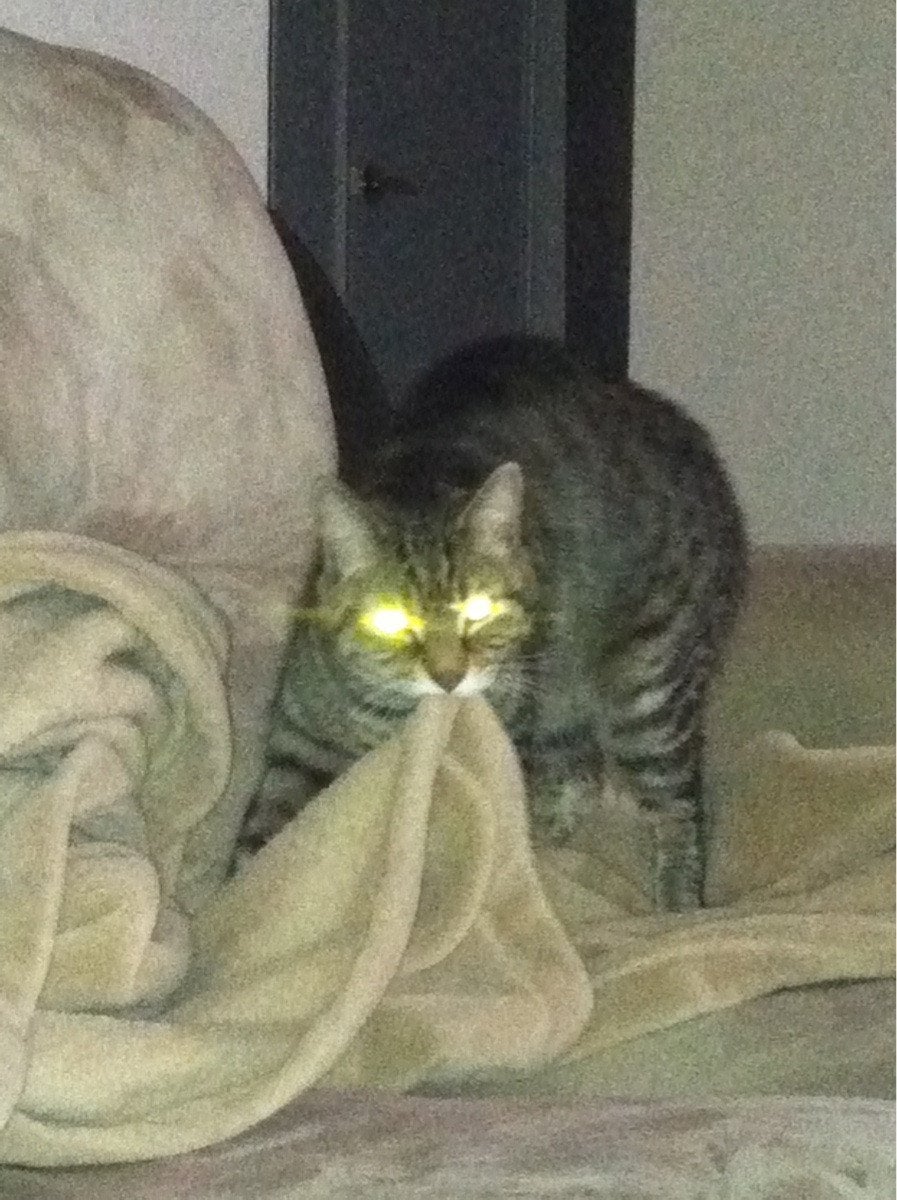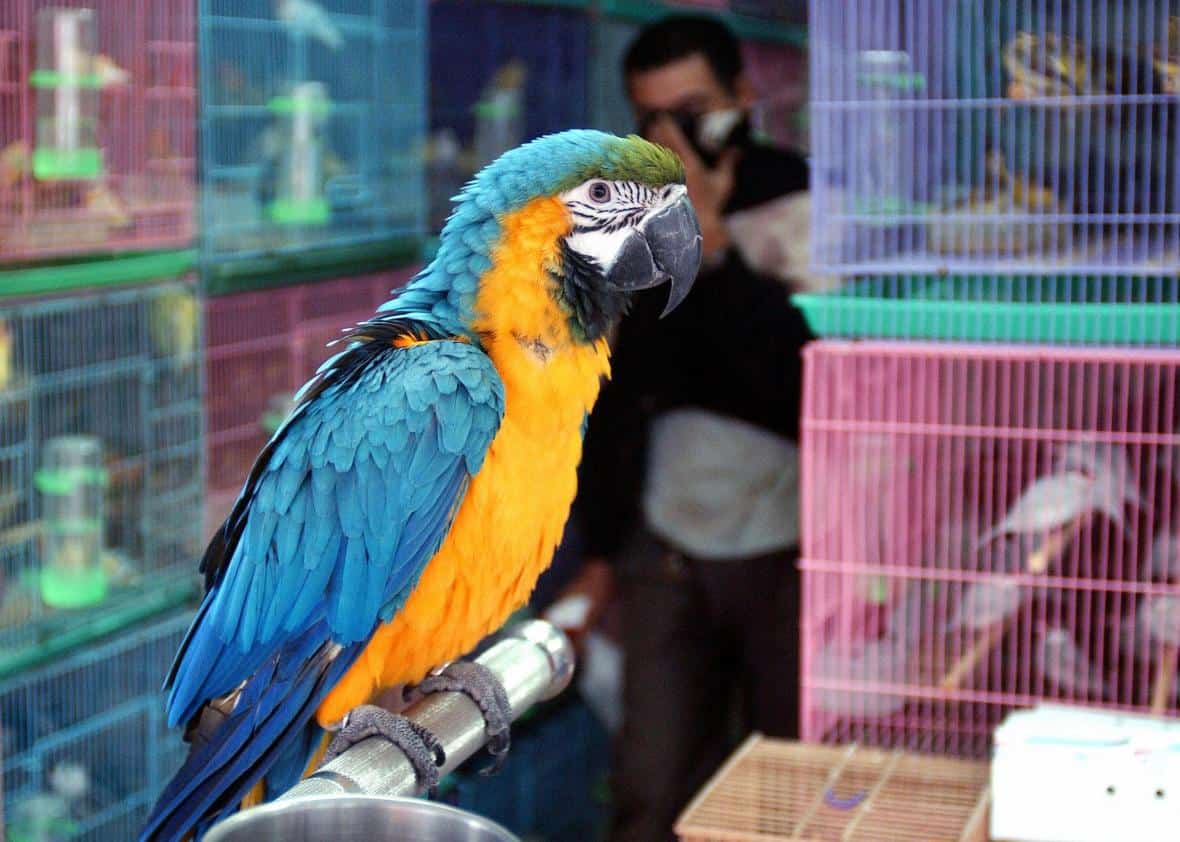Cats bite blankets and knead them because they associate them with their mother’s nipples from kittenhood. This behavior is a sign of contentment and often occurs during moments of relaxation or sleep.
When a cat bites your blanket and kneads it, it is a sign that your feline friend is feeling happy, relaxed and content. It’s a behavior that is often seen when a cat is feeling comfortable or is preparing to sleep. There is a reason why cats love to knead on blankets, pillows or even on their owners’ lap. This behavior goes back to kittenhood, where they would knead on their mother’s nipples to stimulate milk flow. Biting the blanket is also associated with their kittenhood when they would bite and lick their mother’s nipples as they were nursing. Although it may seem strange to us, this behavior is completely normal and a way for your cat to show their contentment and affection. In this article, we will dive deeper into why cats love to bite and knead blankets and what it means for their mood and behavior.

Credit: cat-world.com
Understanding The Behavior Of Cats
Cats exhibit many curious behaviors, including biting and kneading blankets. To understand why cats do this, we need to delve into felines’ psychology. Research suggests that cats’ biting and kneading behaviors may be linked to early kittenhood, when they learned to stimulate milk flow from their mothers.
Factors that can influence cats’ biting and kneading behaviors include their environment, individual temperament, and relationships with their owners. In cats, kneading is often a sign of affection, as it mimics the actions undertaken while nursing. Biting may be a playful or attention-seeking behavior, but it could also be a symptom of pain or discomfort.
Understanding cats’ behaviors is crucial for creating a positive relationship with our feline friends.
Reason Why Cats Bite And Knead Blankets
Cats are known for their quirky, peculiar behaviors, including biting and kneading blankets. However, this isn’t just random, senseless behavior. It’s instinctual for cats to use these actions as a means of comfort and security. Much like how a baby might suckle on a pacifier, biting and kneading helps cats relax and feel safe.
Blankets, in particular, provide a sense of warmth and coziness. The texture of the fabric can also simulate a mother’s fur, triggering comforting memories. So, if you’ve ever caught your cat nibbling on your blanket or kneading it with their paws, know that it’s just their natural instinct at work.
Why does my male cat bite my blanket and knead it?
Tips To Stop Your Cat From Biting Your Blanket
Cats have a natural instinct to bite and knead soft objects like blankets. While it may seem cute, it can also ruin your belongings. To stop your cat from biting your blanket, redirect its attention to appropriate toys, such as balls or stuffed animals.
Positive reinforcement, such as treats or praise, can also encourage your cat to avoid biting and kneading your blanket. Additionally, avoid trigger situations, such as playing too aggressively or roughhousing with your cat. By following these tips, you can train your cat to respect your belongings without sacrificing their natural playful instincts.
How To Protect Your Blanket From Your Cat
Cats biting and kneading blankets is a common behaviour, but it can damage your favourite blanket. To protect your beloved possession, you might want to consider choosing cat-proof blankets. These are usually made with sturdy material that can withstand your cat’s scratches.
If your feline persists in biting or kneading your blanket, using deterrents such as double-sided tape or a citrus scent can help discourage the behaviour. Another option is to train your cat to respect your boundaries by redirecting its attention to a more appropriate object, like a scratching post.
By following these simple tips, you can enjoy cuddling with your cat without worrying about your blankets getting ruined.
Understanding The Difference Between Normal And Abnormal Behavior
Cats biting and kneading blankets is a typical behavior and a sign of comfort. However, when it becomes excessive or aggressive, it may indicate problems. Identifying any underlying medical conditions, such as dental issues or anxiety, is crucial to addressing the behavior.
Seeking help from a professional can also be beneficial in managing the problem. Remember, cats communicate through their behavior, so understanding their actions is key to providing proper care and attention.
Frequently Asked Questions Of Why Does My Cat Bite My Blanket And Knead It
Why Does My Cat Knead Blankets?
Kneading blankets is an instinctive behavior for cats. Kittens knead their mother’s breasts while nursing to stimulate milk flow. As they grow up, cats continue this behavior when they feel happy and content.
Why Does My Cat Bite My Blanket?
Biting blankets is another natural feline behavior. Cats use their mouth to explore and interact with objects. Your cat may also be marking their territory by leaving their scent on your blanket.
Is My Cat Trying To Play When Kneading Blankets?
Kneading can be a sign of affection or playfulness. When cats knead blankets, they may also purr and show other signs of relaxation. Your cat may want to play or cuddle when they knead.
How Do I Get My Cat To Stop Biting My Blanker?
To discourage your cat from biting blankets, provide them with appropriate playthings like balls and chew toys. Keep your blankets away from your cat’s reach or spray them with cat repellent. Clap your hands or make a loud noise when you see them biting the blanket.
Conclusion
To wrap it up, cats are fascinating creatures that have many quirky behaviors. Kneading and biting blankets may seem strange to us, but it is just another way that cats show their affection and mark their territory. It is also a behavior that can be traced back to their wild ancestors.
Understanding why your kitty is doing this can help you better connect with your feline friend and create a loving and respectful relationship. However, if this behavior becomes excessive, it is important to seek help from a veterinarian or animal behaviorist.
Providing your cat with plenty of playtime, scratching posts, and attention can also help redirect their energy and prevent unwanted behaviors. Remember, your kitty’s behavior is their way of communicating with you, so try to embrace their quirks and enjoy the unique relationship you share with your feline companion.
{ “@context”: “https://schema.org”, “@type”: “FAQPage”, “mainEntity”: [ { “@type”: “Question”, “name”: “Why does my cat knead blankets?”, “acceptedAnswer”: { “@type”: “Answer”, “text”: “Kneading blankets is an instinctive behavior for cats. Kittens knead their mother’s breasts while nursing to stimulate milk flow. As they grow up, cats continue this behavior when they feel happy and content.” } } , { “@type”: “Question”, “name”: “Why does my cat bite my blanket?”, “acceptedAnswer”: { “@type”: “Answer”, “text”: “Biting blankets is another natural feline behavior. Cats use their mouth to explore and interact with objects. Your cat may also be marking their territory by leaving their scent on your blanket.” } } , { “@type”: “Question”, “name”: “Is my cat trying to play when kneading blankets?”, “acceptedAnswer”: { “@type”: “Answer”, “text”: “Kneading can be a sign of affection or playfulness. When cats knead blankets, they may also purr and show other signs of relaxation. Your cat may want to play or cuddle when they knead.” } } , { “@type”: “Question”, “name”: “How do I get my cat to stop biting my blanker?”, “acceptedAnswer”: { “@type”: “Answer”, “text”: “To discourage your cat from biting blankets, provide them with appropriate playthings like balls and chew toys. Keep your blankets away from your cat’s reach or spray them with cat repellent. Clap your hands or make a loud noise when you see them biting the blanket.” } } ] }



